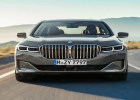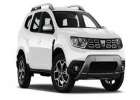TRY


Artık firmalarda kendi araç filolarını kurmak için İzmir rent a car firmalarını tercih etmekte ve a...
Devamını oku
İzmir 4X4 Araç Kiralama İzmir’de arazi aracı kiralama firmaları sektöründe faaliyet göster...
Devamını oku
İzmir Araç Kiralama İhtiyaçlarınızda Biz Varız Araç kiralamak zaman zaman her insanın ihtiya&cced...
Devamını oku
2023 Yılının En Popüler Kiralık Araçları Uzun bir süredir yürütmekte olduğumuz araştırmalar...
Devamını oku
Adnan Menderes Havalimanı’nda Uygun Oto Kiralama Adnan Menderes Havalimanına iç ve dış hatlardan gelen ki...
Devamını oku
İzmir’in en köklü araç kiralama firmalarından biri olan İzmir havalimanı araba kiralama, konforl...
Devamını oku